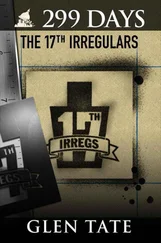Not Ed. He knew what was going on. The government had finally taken over the last remaining parts of the economy. People were thanking the government for taking all their money in exchange for some instant mashed potatoes. Ed, the business man, could see what was happening.
It was an inflationary depression. The worst of both worlds. Usually, inflation and a depression are opposites. The inflation is a sign of an overheated economy so prices go up. A boom. A depression is the opposite, the lack of economic activity. Prices fall because no one can buy things. The government wizards who created the Collapse managed to combine the two for an inflationary depression.
The inflation came from creating too many dollars out of thin air and international reluctance to keep financing America’s absurd debt. As investors moved away from putting their money into dollars, they started buying up commodities, like food and oil. The ongoing war in the Middle East spiked the price of oil. The entire U.S. economy—all those semi trucks and everything in them—was dependent on cheap oil. When oil got really expensive, the prices for everything else skyrocketed, too.
At the same time that everything cost more, no one had any money. Who could buy anything when gasoline alone cost $10 a gallon? The economy ground to a halt. Taxes were ridiculously high, too, leaving even less money in most people’s pockets. Government regulators were in overdrive, so no rational person would invest in a business only to have a bureaucrat shut them down the next day for no particular reason. Small businesses closed temporarily or just went out of business.
Finally, it got so bad that government couldn’t ignore it anymore. Immediately before the Collapse, government started laying off public employees. It was too little too late, and it dumped millions of people into the unemployment line. They couldn’t pay their mortgages, let alone buy anything. Plus, inflation raised the prices of all the necessities, especially food, so what little money people had went to food, and maybe a little gas. Everything else was dropped.
Especially buying homes. Ed saw that homes were listed for a quarter of what they were in the real estate boom that happened years ago, and still weren’t selling. Ed’s real estate agency hadn’t sold a home in six months, and they used to sell hundreds a month.
The economy was essentially dead. America turned into a nation of bankrupt convenience store customers. All the money they had went to Doritos and gas. It was pathetic.
In the few months right before the Collapse, one of the main ways Ed was surviving was by tax evasion. Like millions of other Americans, he pretty much quit paying taxes because everyone knew the IRS couldn’t possibly put everyone in jail. The IRS only had enough agents to go after the vocal tax protestors. And they did. While most of the violent felons were released from prisons due to budget cuts, the government still had plenty of money to pay for jail space for tax protestors. It showed where their priorities were.
In the months leading up to the Collapse, the federal government was collecting less than half of what it was a year earlier, and tax rates had gone up substantially. Everyone evaded taxes, except the poor because they didn’t pay any. They even collected the Earned Income Tax credit, which was a tax “refund” even though they didn’t pay any taxes. It was a complete handout under the guise of a tax refund. Some of them cheated, too, by submitting multiple claims for their “refund.” The whole system was corrupt.
And no one cared. The rich evaded taxes, the middle class quit paying them, and the poor got their Earned Income Tax credits. No one had a stake in caring.
Ed’s savings were gone. He still had plenty of money in the bank, but the banks were closed. His investments were now pretty much worthless with the stock market basically ceasing to function.
He had planned a glorious retirement. He was a Baby Boomer and that’s all he and his friends had talked about when they hit their early sixties. Oh well. Just another thing that died when America finally collapsed.
Since his bank accounts and investments were worthless, Ed decided he’d get an FCard. Might as well get some mashed potatoes for he and his wife. He’d paid for them with his taxes and savings. Then he laughed to himself. A few years ago, he would spend hours on the computer obsessing over which fund to put his money in and the returns of this stock or that one. Now he was willing to trade it all in for some “truck stop” food.
Ed was trying to be positive. A dark sense of humor helped many people get through these times. “At least we won’t have to worry about how to pay for health care,” he said to his wife. “There isn’t any health care anymore.” He hated going to the doctor, anyway. Problem solved.
Most of the people living around Ed were smart business people. Their regular businesses had been destroyed, but they were still capitalists at heart, even if the government had slowly squeezed almost all the entrepreneurial spirit out of them. Within a week of May Day, some of his neighbors started figuring out things that people needed and how to make money by providing them. They weren’t “gouging” people, just accepting much-needed things in exchange for providing much-needed things. Little businesses started to spring up. They were all illegal, of course, but the government was powerless to stop them.
Ed knew a lot about homes. Not just the real estate sales part of them, but also how they were built. He had been either a licensed home inspector or dealt with home inspectors for almost thirty years. So, he let people know that he could look at things in their houses and maybe repair them. Ed had a network of handymen he used on his properties. He would send the work to them, for a slice of it, of course. People would take cash, but in such high amounts that almost no one had that kind of money lying around after the banks closed. Payment would be in goods—food, gas, liquor, whatever—or FCards. There were no photos on FCards; it was all the government could do just to get them up and running without fancy do-dads like verifying people’s identity, so FCards could be traded. Just like packs of cigarettes in prison.
Ed wondered if the government intentionally created FCards that could easily be traded and thereby created a new currency; one that didn’t have anything of value to back it up. Just like the old dollar. Plus, the more people with FCards, the more people were fed and not plotting to overthrow the government.
There was one other thing that got traded, but not with Ed. Attractive women seemed to have no trouble acquiring things. Not just women; Seattle had a very large gay population, so attractive men willing to do anything were also well taken care of. At first, most of the “escorts” involved in this would never have considered it. Especially all the cute yuppie soccer moms in West Seattle. Ed had assumed the soccer moms were doing it to feed their kids, but most houses had enough food, even if it was “truck stop” food. To Ed’s surprise, most of the women didn’t do it to feed their kids; they did it for luxury items. (Well, just day-to-day items taken for granted before the Collapse. But they were “luxuries” after the Collapse.) Not a majority of women did this, but a sizeable minority of them did. Some husbands and boyfriends were OK with it—morals seemed to decline even more after the Collapse—but many weren’t. Most women did it secretly. It was survival.
The churches in Seattle did not slow down the rapid morale decline after the Collapse. The churches in Seattle had always been very weak. Church attendance was essentially nonexistent there before the Collapse. After the Collapse, many people in Seattle, as elsewhere, went to church to find some answers. However, the churches in Seattle, which were almost uniformly liberal or extremely liberal, became administrative arms of the government. The Freedom Corps used churches as distribution points. The government appealed to the people’s religious sentiment (what was left of it) as a propaganda tool. “Jesus would share” and “Render unto Caesar” were the government messages aimed at church goers. The government even created the “Faith Corps” for clergy to join. A government religious agency to carry out the government’s objectives? The Founders of the nation were spinning in their graves.
Читать дальше











